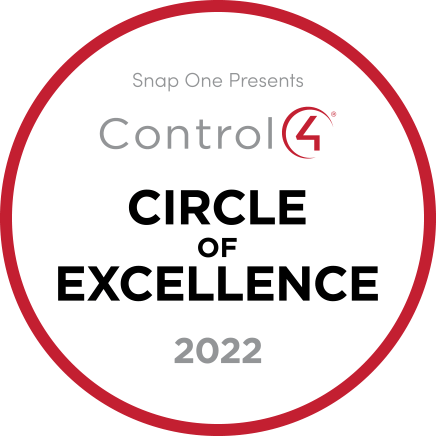People with Autism
Helping you thrive in your home
Challenges in the home for children or young adults with Autism
Distressing behaviour in children and young people with autism can involve aggression, self-injury, destructiveness, wondering around home at night or even absconding from the home.
Children and young people with autism can face home-based challenges including sensory sensitivities to noise or light, difficulty with executive functioning (planning, organisation, and daily living tasks), struggles with emotional regulation and understanding social cues, and a strong need for routine and predictability that can be disrupted by changes.
Following are just some of the common challenges around a home children or young adults with Autism might face:
- Sleep Disorder
- Absconding at Night
- Attention Deficits & Trouble Focusing
- Problems with Planning & Organization
- Sensory Sensitivities
- Anxiety and Depression
- Difficulty with Activities of Daily Living
- Need for Routine
Positive outcomes for people with Autism
Automated Spaces offers a variety of Independent Living Technology solutions that can provide a broad range of positive outcomes for those children or young adults with Autism:
- Increased Independence
- Improved Home Safety
- Create a Sense of Time of Day/Daily Routine
- Positively Impact Focus & Cognitive Performance
- Reduced Anxiety/Stress
- Increased Personal Safety
- Reduced Risk of Sensory Sensitivity Events
Some of our Independent Living Technology solutions also can provide the following outcomes for those caring for children or young adults with Autism:
- Reduced Demand on their Time
- Increased Quality of Time with Family Member/Friend
- Reduced Stress/Anxiety
- Faster Response to Emergency
If you would like to know more about how we can provide these outcomes
Independent living technology solutions for people with Autism
Automated Spaces can provide the following Independent Living Technology solutions for people with Autism:
- Smart home scenes
- Smart home hub
- Occupancy activated room lighting
- Circadian rhythm lighting
- CCTV curtilage monitoring
- Schedule based automations
- Door status monitoring
- Room activity monitoring
- Door/window contact sensors
- Electronic shared calendar
See the following sections for further details about the independent living technologies for people with Autism.
You can also download our
autism brochure by completing the form at the bottom of this page.
Smart home scenes
Smart home scene, that can simultaneously automate numerous actions around the home e.g., ‘Good Morning’ scene that turns on the lights at an appropriate light level, switches on a TV/radio station to a favourite channel, opens blinds/curtains and starts boiling a kettle.
'Good Night' scene that completes several end of day/going to bed tasks e.g., turns off TV or music playing in bedroom, then automatically slowly dims the bedroom lights, to an eventual totally off state, over short period e.g., 15 minutes.
Automating these types of known routines, as well as being useful from a practical perspective, can also help to people create a sense of routine/structure.
Useful for people who struggle to settle down to sleep or get going in the morning. As well as being useful for those who like routine.
Smart home hub
A Smart Home Control System acts as a central hub for a wide range of 3rd party devices and variety of differing manufacturer’s products. It translates the communications between these different devices, which use differing programming languages, so that they can all share information with the central smart home control hub.
The hub can then co-ordinate the appropriate resulting action, based on the incoming signals, on the relevant devices around the home e.g., when a sensor detects that a person has left their bed in the middle of the night it can activated dimmed lighting within the bedroom to prevent a fall from a trip. If a further sensor then detects that the door or window to that bedroom has been opened it could at that stage alert the person's parents or carer that there is a potential risk of an abscondence.
Useful for those caring for a person with Autism who is prone to absconding at night i.e., they won't be woken up by alerts that the person is up and awake in their bedroom at night. But they would be alerted if that person tries to leave their bedroom. Reducing the stress on the carer whilst also providing the dignity of independence to the person with Autism.
Occupancy activated room lighting
Lights in rooms automatically turn on when someone enters or leaves the room depending upon the time of day and whether the room is dark. The brightness levels that light fixtures turn on can be controlled by the smart hub to ensure that they don’t cause the person a sensory sensitivity event.
An example would be that the brightness levels of the light fixtures could turn on at say dimmed to 50% between sunset and 20:30hrs and dimmed to only 10% between 20:31hrs and sunrise in communal areas e.g., hallways. Whereas those lights in bedrooms and associated en suite could be programmed to turn on at even lower levels during the evening to prevent a sensory shock to someone who might wake up from sleeping for a night time bathroom visit.
Useful for those people for whom the sudden turning on of a very bright light fixture, especially immediately after waking, might cause them sensory sensitivity event.
Circadian rhythm lighting
LED light fixtures that can have their colour temperature automatically altered, gradually throughout the day, by a Smart Home Hub. This allows the LED lights to mimic the changing colour of the sun rays outside through the daylight cycle i.e., a warm brownish/white 2700K first thing in the morning at sunrise, increasing to a brilliant white 6000K in the middle of day, then gradually cycling back to the warm brownish/white 2700K by sunset.
Mimicking the natural outdoor sunlight colour temperature, on your internal light fixtures, can have a positive impact on your circadian rhythm. A healthy circadian rhythm has been associated with an improved body clock, better sleep patterns and alertness during the day. Studies have also shown this can reduce the risk of falls (in care homes).
Lights can be operated by smart light switch, mobile phone/tablet application, voice command or as part of a pre-programmed schedule or in response to external events (e.g., trigger of a presence sensor, etc.).
Useful for those that suffer with sleep related issues e.g., fatigue, tiredness, lack of concentration, etc.
CCTV curtilage monitoring
CCTV tracking if the resident has left the curtilage or boundary of the property, whilst leaving any of the doors open/unlocked and or Intruder Alarm unarmed, in the early hours of the morning.
If so, sending a push notification and/or email alerts to family members, informal carers or care provider service.
Useful for those that care for people that occasionally abscond at night.
Schedule based automations
Scheduled smart home automation events e.g., smart light fixtures switching on and motorised blinds automatically closing at sunset or blinds opening at scheduled a time in the morning such as 15 minutes before sunrise, with smart lighting that can automatically adjust not only their brightness but also their colour temperature as the daylight hours shift throughout the year.
Useful for those who might not have the focus to complete a series of tasks.
Also good to help create a sense of routine throughout the day and night.
Door status monitoring
Sensors on both internal and external doors, connected to a smart home hub, that confirm the open/closed status of the door.
This allows the smart home hub to generate intelligent alerts based on external factors i.e., an audible alert will only be generated for the external door being opened if it is between the hours of 23:00hrs to 07:00hrs. If the door is opened at times, this will be logged in an audit, but no audible alerted would be triggered.
Useful for those that care for people that occasionally abscond at night.
Room activity monitoring
Ability for family members and carers of people with Autism to access an online portal that includes a dashboard showing key health and safety data relating to their loved one e.g., adherence to daily routines such as total hours slept, time spent in their room, time spent out of their room, etc.
The system could also be configured to forward the family member or carer an alert for those types of issues that they would like to be informed about i.e., roaming around the house late at night, etc.
Useful for those family members or carers concerned about their relative who struggles to settle down to sleep and are prone to absconding from their home at night.
Door / window contact sensors
Door/Window contact sensors that can send push notification/email alerts to service user, resident, family members or informal care providers when the door/window has been left opened for too long or has been opened late at night.
A great solution to improve home security and reduce risks of burglary through open windows or doors. As well as to alert should someone try to abscond from a property via a door/window late at night.
This solution is useful for those who care for people who are likely to occasionally abscond late at night.


